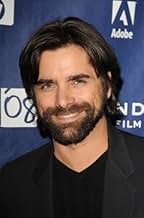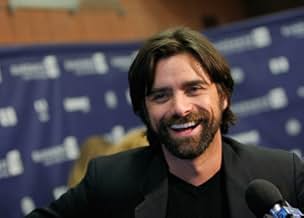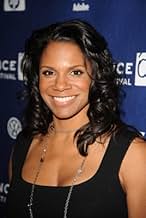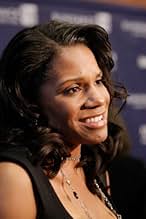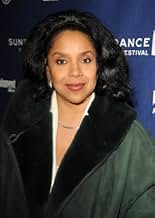NOTE IMDb
6,5/10
2,2 k
MA NOTE
Ajouter une intrigue dans votre langueAn African-American family struggles with poverty, racism, and inner conflict as they strive for a better way of life. Based on the play by Lorraine Hansberry.An African-American family struggles with poverty, racism, and inner conflict as they strive for a better way of life. Based on the play by Lorraine Hansberry.An African-American family struggles with poverty, racism, and inner conflict as they strive for a better way of life. Based on the play by Lorraine Hansberry.
- Réalisation
- Scénario
- Casting principal
- Nommé pour 3 Primetime Emmys
- 9 victoires et 24 nominations au total
Sean 'Diddy' Combs
- Walter Lee Younger
- (as Sean Combs)
Ron Cephas Jones
- Willy Harris
- (as Ron C. Jones)
Avis à la une
In 1959 Chicago, the Younger family lives in a small apartment with cockroaches and other problems, although they have done their best to make it look nice.
Walter works as a chauffeur for a white family that doesn't seem to acknowledge him as a human being. He is tired of "Yassir" and "Nossir" and wants to start his own business with friends Bobo and Willy.
Walter's mother Lena works as a maid and is loved by the little girl she cares for, but she can quit that job now since she is getting a $10,000 life insurance check after the death of her husband.
Walter's wife Ruth does people's laundry and raises their son Travis. Walter's sister Beneatha also lives with them, sharing a room with her mother. Travis sleeps on the couch in the living room.
What is the best way to spend the insurance money? Beneatha could use it to go to medical school. She is in college now, and she has two potential romantic partners--George, who comes from a rich family and is about as black as Carlton Banks, and language professor Joseph Asagai, who wants to teach Beneatha about Africa.
But Walter wants to open a liquor store. Imagine how that will go over with his devout Christian mother.
Lena sees a great opportunity to move into a better neighborhood. But the people next door to the house she finds are all white and don't want blacks moving in.
For the most part, this movie came across as the quality production ABC told us it was. The characters are strong and have values, but the question is how much will circumstances cause them to question those values.
Phylicia Rashad will surely be mentioned at Emmy time. She was outstanding, showing so much emotion when the time came to do it. It's the first time I ever saw her play a truly black character. I had to look closely to make sure it was actually her. Up until now, she has played attractive, young-looking women who could have been any ethnic group but happened to be dark-skinned.
Audra McDonald also did a very good job, and she was quite good-looking even here, with such a nice smile.
David Oyelowo showed so much passion for his heritage and for teaching the woman he cared about to have the same passion.
Not to take anything away from her performance, but Sanaa Lathan just got on my nerves. Perhaps that means she was doing everything right.
Sean Patrick Thomas did a good job showing another side of black culture; in the 1950s most blacks did not have money, and despite having dark skin, he seemed out of touch with the problems of his race, quite content with life.
Sean Combs didn't quite give the impression of quality that ABC had led me to expect. He was good, but almost always so bitter. I can't blame the writing, because Sidney Poitier played the role, and we all know he would have done a magnificent job with it. But Combs was good enough.
Bill Nunn had one fine scene as Bobo. He was in several other scenes, but he lived up to the promise of this film.
I liked John Stamos a lot on "Full House" (in fact, he was the reason I started watching the show in the first place). I liked him here. But surely not everyone will. He seemed out of place in this type of production. It was like watching Uncle Jesse facing Aunt Becky and trying to weasel out of having behaved in a racist way, mainly by explaining it was everyone else who wanted him to do it. But he was not threatening at all.
This is certainly worth seeing.
Walter works as a chauffeur for a white family that doesn't seem to acknowledge him as a human being. He is tired of "Yassir" and "Nossir" and wants to start his own business with friends Bobo and Willy.
Walter's mother Lena works as a maid and is loved by the little girl she cares for, but she can quit that job now since she is getting a $10,000 life insurance check after the death of her husband.
Walter's wife Ruth does people's laundry and raises their son Travis. Walter's sister Beneatha also lives with them, sharing a room with her mother. Travis sleeps on the couch in the living room.
What is the best way to spend the insurance money? Beneatha could use it to go to medical school. She is in college now, and she has two potential romantic partners--George, who comes from a rich family and is about as black as Carlton Banks, and language professor Joseph Asagai, who wants to teach Beneatha about Africa.
But Walter wants to open a liquor store. Imagine how that will go over with his devout Christian mother.
Lena sees a great opportunity to move into a better neighborhood. But the people next door to the house she finds are all white and don't want blacks moving in.
For the most part, this movie came across as the quality production ABC told us it was. The characters are strong and have values, but the question is how much will circumstances cause them to question those values.
Phylicia Rashad will surely be mentioned at Emmy time. She was outstanding, showing so much emotion when the time came to do it. It's the first time I ever saw her play a truly black character. I had to look closely to make sure it was actually her. Up until now, she has played attractive, young-looking women who could have been any ethnic group but happened to be dark-skinned.
Audra McDonald also did a very good job, and she was quite good-looking even here, with such a nice smile.
David Oyelowo showed so much passion for his heritage and for teaching the woman he cared about to have the same passion.
Not to take anything away from her performance, but Sanaa Lathan just got on my nerves. Perhaps that means she was doing everything right.
Sean Patrick Thomas did a good job showing another side of black culture; in the 1950s most blacks did not have money, and despite having dark skin, he seemed out of touch with the problems of his race, quite content with life.
Sean Combs didn't quite give the impression of quality that ABC had led me to expect. He was good, but almost always so bitter. I can't blame the writing, because Sidney Poitier played the role, and we all know he would have done a magnificent job with it. But Combs was good enough.
Bill Nunn had one fine scene as Bobo. He was in several other scenes, but he lived up to the promise of this film.
I liked John Stamos a lot on "Full House" (in fact, he was the reason I started watching the show in the first place). I liked him here. But surely not everyone will. He seemed out of place in this type of production. It was like watching Uncle Jesse facing Aunt Becky and trying to weasel out of having behaved in a racist way, mainly by explaining it was everyone else who wanted him to do it. But he was not threatening at all.
This is certainly worth seeing.
I can honestly say I enjoyed this movie, I enjoyed the 1984(?) version with Danny Glover and was hoping to catch a treat with this film. A treat a received greatly.
Yes this film had many flaws, as does every movie. So I shall give the flaws then the bright side of the film Flaws: I was bored the first half of the film, it moved in a little slow, and Sean Combs performance didn't help. I felt that the cast excluding Sean Combs was superb and was full of real emotion and strength. Combs was trying to hard to act, when he should have let it flow and have a real feeling for the character and not just try to over act. He does have his moments though, but those moment are quickly cut back to his not letting it flow and not having a true feeling for the character.
Bright Side: The film was a delight. Raw emotion and strength from the leading ladies and the leading men(excluding Sean Combs). Phylicia Rashad was full of emotion and pride, that you instantly love her and feel for her and the pain she goes through. Audra McDonald is superb and excellent actress who is going somewhere, you also feel for her and go through struggles and emotion. Beneatha Younger (Sanaa Lathan) is spunky, yet naive. You love her and many of my young generation can relate to her.
Overall: The acting is brilliant coming from the cast, again excluding Sean Combs yet he does have moments. Direction is great, and the feel and emotion and strength is just excellent 8/10 -Izzy
Yes this film had many flaws, as does every movie. So I shall give the flaws then the bright side of the film Flaws: I was bored the first half of the film, it moved in a little slow, and Sean Combs performance didn't help. I felt that the cast excluding Sean Combs was superb and was full of real emotion and strength. Combs was trying to hard to act, when he should have let it flow and have a real feeling for the character and not just try to over act. He does have his moments though, but those moment are quickly cut back to his not letting it flow and not having a true feeling for the character.
Bright Side: The film was a delight. Raw emotion and strength from the leading ladies and the leading men(excluding Sean Combs). Phylicia Rashad was full of emotion and pride, that you instantly love her and feel for her and the pain she goes through. Audra McDonald is superb and excellent actress who is going somewhere, you also feel for her and go through struggles and emotion. Beneatha Younger (Sanaa Lathan) is spunky, yet naive. You love her and many of my young generation can relate to her.
Overall: The acting is brilliant coming from the cast, again excluding Sean Combs yet he does have moments. Direction is great, and the feel and emotion and strength is just excellent 8/10 -Izzy
A RAISIN IN THE SUN is the 2nd television remake of the 1961 film based on the play by Lorraine Hansberry and the recent Broadway revival about broken dreams that centers on the Younger family, a hard-working black family living in a cramped Chicago tenement in 1959, to whom we are introduced to the day before the family is to receive a $10,000.00 insurance check and the tensions that arise from the plans that the young patriarch of the family has already made for money that really isn't his. Lena Younger (Phylicia Rachad) is a strong,God-fearing woman who has worked as a housekeeper to a white family for years but has decided to retire because of her impending windfall (the check is only coming because of the death of Lena's husband). Walter Lee Younger (Executive Producer Sean "Puffy" Combs)is a chauffeur who wants to use Lena's money to start his own business. Walter's wife, Ruth (Audra McDonald)is a strong-willed woman who finds herself constantly torn between her husband and her mother-in-law, often at the expense of her son Travis(Justin Martin). Beneatha (Sanaa Lathan) is Walter's flighty, free-spirited sister, struggling to find her identity as a black woman, full of more dreams than she can handle, which are further complicated by her relationships with two completely different kind of men. This story first hit theaters in 1961 with Sidney Poiter as Walter Lee, Ruby Dee as Ruth, and Claudia McNeill as Lena. Combs has brought the cast of the highly successful Broadway revival (which won Tony Awards for Rachad and McDonald) to the small screen and aided by the detailed direction of Kenny Leon, has opened up the story for the television screen without losing the story's intensity or intimacy. Phylicia Rachad is nothing short of brilliant, in the performance of her career, as Lena, the proud matriarch struggling to hold her family together and hoping that this money might help. Audra McDonald, who has won 4 Tony Awards for her work in Broadway musicals and won a fifth for this role on Broadway, proves that she is as powerful an actress as she is songstress as she brings a depth and substance to the pivotal role of Ruth that I have never seen before. Sanaa Lathan also offers one of her best performances as the bombastic Beneatha, a walking talking hurricane of emotions struggling to find who she is in a world where she feels like she is suffocating. Sadly, Sean Combs had some big shoes to step into, taking on a role originated by Sidney Poiter and for me, his performance just doesn't work...there is an emptiness to the performance that implies Combs really doesn't understand a man like Walter Lee. Combs also seems to be unaware at times that he is now in front of a television camera and not in a Broadway theater and that certain facets of his performance have to be taken in and controlled, which can be partly blamed on the director I suppose, but this problem only exists with Combs, not his leading ladies. Poitier brought a dignity and maturity to the role of Walter Lee that Combs is missing...he plays the role as a petulant child, diluting a lot of its power. Despite Combs problematic performance, this film stands as a worthy tribute to its predecessors thanks to the mostly effective direction by Kenny Leon and three extraordinary performances from Sanaa Lathan, Audra McDonald, and especially Phylicia Rachad.
I thoroughly enjoyed this film version of "A Raisin in the Sun." The play is an important work of American literature and this adaptation brings it to life with emotional, engaging performances. The strongest portrayals come from Phylicia Rashad (Mama) and Audra McDonald (Ruth). This film includes some scenes that have been added from the original play, but these do not detract from the story; rather, they add context that readers of the play may miss. For instance, the play is set entirely in the Younger family's apartment. However, the film includes scenes set in a number of different locations around 1950's Chicago; this allows the film to show some of the racism that the Younger family faces as African Americans living in pre-Civil Rights America. The theme of racism is present in Hansberry's original play, but it may not be obvious to all readers. This film version does an effective job of illustrating this important theme so that viewers can understand the Youngers' story as one of struggle to overcome systemic discrimination.
I think the movie was pretty good. The actors were great. They knew what was happening. The book and the movie are very similar. Some scenes are added or some don't show up. For example in the movie it gives more details than the book. It shows more and in the book it mostly takes place in the Younger's apartment. In the movie the setting is not just in the apartment. The ending in the book is different from the ending in the movie but besides that I liked the movie/book.
Le saviez-vous
- AnecdotesPhylicia Rashad's sister, Debbie Allen, played "Beneatha Younger" in the Broadway musical, "Raisin".
- GaffesWhen they are packing up the apartment, Momma is working on putting sticks around a small plant to protect it to wrap it. The number and location of the sticks are not in sync with the timing.
- ConnexionsFeatured in The 60th Primetime Emmy Awards (2008)
Meilleurs choix
Connectez-vous pour évaluer et suivre la liste de favoris afin de recevoir des recommandations personnalisées
Détails
- Date de sortie
- Pays d’origine
- Langue
- Aussi connu sous le nom de
- Una sombra bajo el sol
- Lieux de tournage
- Sociétés de production
- Voir plus de crédits d'entreprise sur IMDbPro
Contribuer à cette page
Suggérer une modification ou ajouter du contenu manquant


